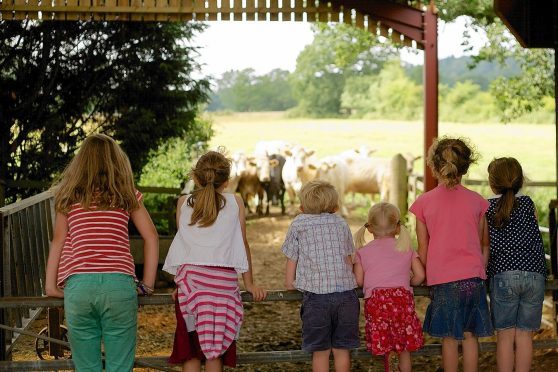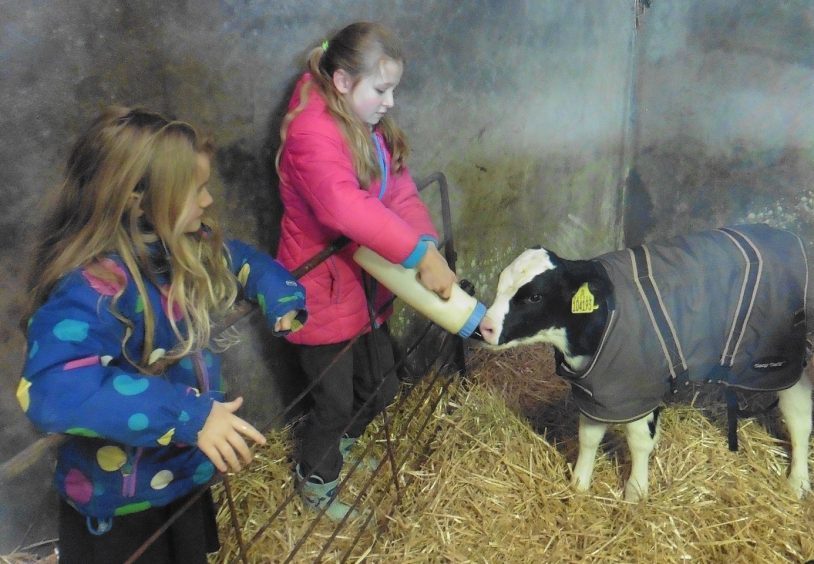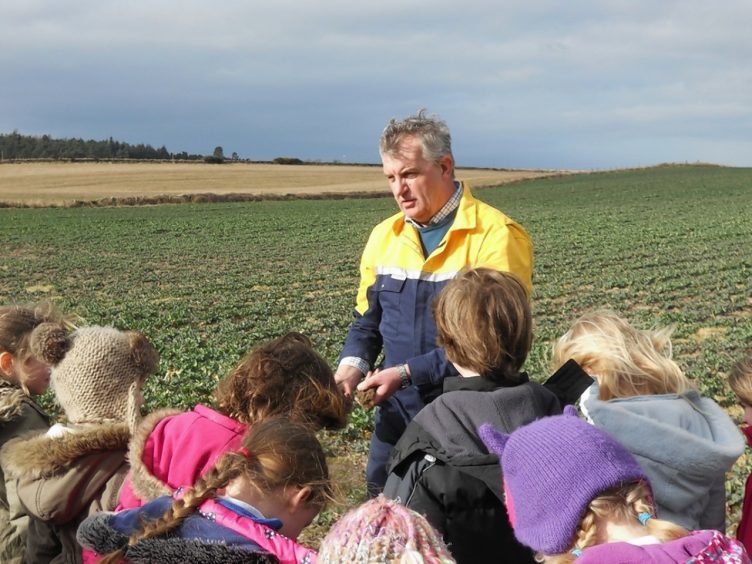A £10,000 fund to train teachers in how to introduce food and farming into their classrooms could help thousands of Scotland’s school children learn about where their food comes from.
Funding from Bayer Crop Science is being used to provide training opportunities for more than 150 teachers at training colleges across the UK.
It could see more than 12,000 more children learning about farming at school nationally, with an extra 1,750 youngsters visiting a farm as part of their education each year.
The investment comes after research carried out on behalf of Bayer and agricultural charity Farming and Countryside Education (FACE) found that teachers were often unaware of the education opportunities that farming offered.
According to one survey, half of the teachers say they rarely or never talk about farming, while 28% say they don’t feel confident enough to teach it. More than a third (35%) struggle to find the right resources.
To tackle the issue, funding from Bayer will be used by FACE to help trainee teachers learn how food and farming fits into the curriculum, and give them the skills to talk about it in the classroom.
Amanda Carter, a teacher at Inverurie Market Place School who regularly takes children on farm visits, says the investment will be invaluable to helping agriculture get into the curriculum,
“I always had a strong interest in growing and producing my own food, so when I became a teacher it was natural for me to incorporate it into my lessons,” she said.
“In Scotland there are lots of areas in the curriculum where food and farming can fit in, but it’s something teachers shy away from because it’s difficult to do if you have no experience.
“If you don’t know how to make butter or bread, or if you’ve never been near a cow yourself, then you might not know how to teach it.”
Mrs Carter said many teachers were nervous about the health and safety issues associated with visiting farms, but said organisations like the Royal Northern Countryside Initiative (RNCI), which links children and teachers in the north and north-east of Scotland to farms, could help.
“RNCI has been invaluable in helping us link up with local farms, go through risk assessments and in organising transport,” she said. “There is support for teachers, but they need that knowledge and courage to do it in the first place.”
Martin Birse, manager of Pitgaveny Farms, Elgin, agrees that it can be daunting for teachers to bring children onto farms, especially if they have no farming background. But he says farmers can help to ease their nerves.
Mr Birse, who welcomes more than 1,000 children from primary and secondary schools onto the estate each year to teach them about food and rural issues, said: “A simple place to start is to go into schools to talk to children about farming.”
Depending on their age, he talks to classes about anything from how to grow crops to careers in agriculture – including forestry, science, agronomy and engineering – and says getting to know teachers can that way can lead to farm visits.
“If you get an enthusiastic teacher on board they will talk about you to other teachers, and things grow from there,” he said.
“Alternatively you could hold a open day and invite teachers along to see the kinds of things you can offer.”
For farmers who feel nervous about speaking to children, or don’t know what they should talk about, Mr Birse recommends talking to teachers to find out what the children are learning in class and thinking about how it could be applied to farming.
“Whether it’s talking about the seasons with younger children, or talking about careers, GM technology or soil science with older ones, there is so much you can cover,” said Mr Birse, who is also NFU Scotland regional chairman for the Highlands.
“Organisations like the RNCI offer lots of support too, so it’s worth getting in touch.
“The message for farmers is to just get involved, A lot of farmers say there aren’t enough young people getting into the industry, but this is there opportunity to do something about it.
“If you show a young person what you do, and you are passionate about it, then that is infectious.”
What do teachers think about farming and the curriculum?
50% rarely or never talk about farming in their lessons
79% want to talk about food and farming more
28% don’t feel confident enough to incorporate farming in their lessons
35% can’t find the right resources
25% of secondary school teachers have never taught outside the classroom
Source: Survey of 500 teachers via Countryside Classroom


